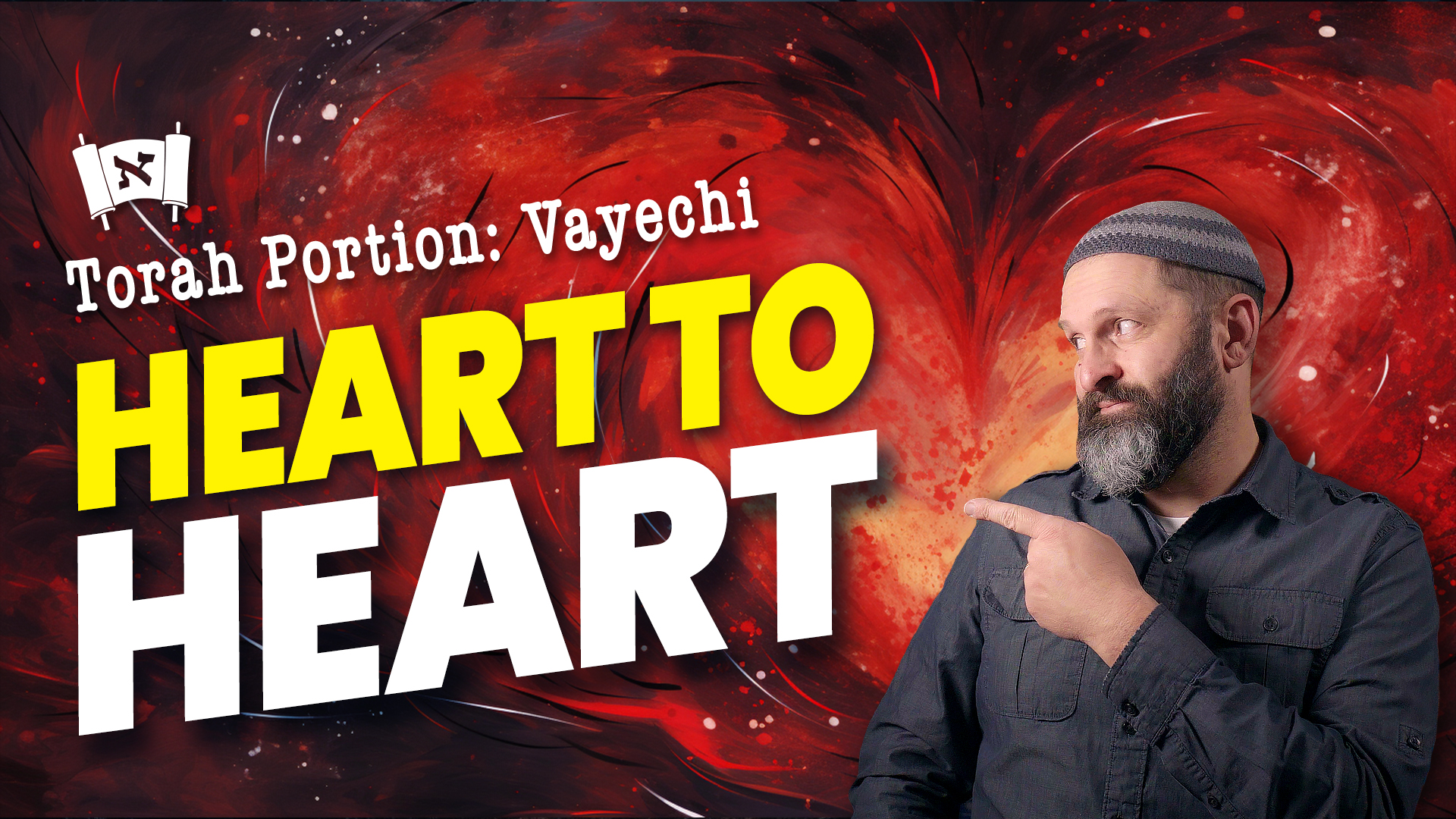My My Heart To Yours
Series:

Parashat Vayechi (Genesis 47:28-50:26)
For the last three portions, we have seen the story of Joseph unfold. Up until now, we have learned the main events of Joseph’s life. We learned about Joseph’s descent into Egypt through the seemingly unfortunate circumstances initiated by his brothers’ hatred toward him. But then we saw how God used this for His own purposes, placing Joseph in a strategic position to be the savior of not only his own family but also the world. We read about the reunion of Joseph and his family, and how he moved his father and all of his brothers down to Egypt so that he could take care of them. Now, in our final portion from the book of B’reisheet (Genesis), we learn about the final days of Jacob and his desire to bestow his blessings upon his children before his passing. The focal point of this portion is the individual blessings he gives to each of his sons, with the adoption and blessing of Joseph’s sons, Ephraim and Manasseh, being an unexpected turn of events.
From a detailed reading of the text, we can learn numerous lessons from this narrative. One lesson is tucked away toward the end of the portion and may easily be glossed over by a surface reading. After Jacob dies, Joseph’s brothers realize that up to this point Jacob may have been the only buffer between them and their brother’s vengeance. They knew how bad they had treated him and fully expected retaliation after their father’s passing. So, they devised a plan. They told Joseph that before Jacob had died, he told them to convey a message to Joseph that he was not to harm his brothers or take revenge on them. When Joseph listened to his brothers, however, he wept. It hurt him to realize that his brothers believed he had malicious intent toward them. He quickly cleared up the matter:
But Joseph said to them, “Do not fear, for am I in the place of God? As for you, you meant evil against me, but God meant it for good, to bring it about that many people should be kept alive, as they are today. So do not fear; I will provide for you and your little ones.” Thus he comforted them and spoke kindly to them. (Genesis 50:19–21)
We are told that Joseph “comforted them and spoke kindly to them” (v. 21). However, our English translations don’t fully capture what the Torah is saying here. Virtually all English translations say that Joseph “spoke kindly to them.” However, the phrase the Torah uses is vay’dabeir al-libam. A more literal reading of the Hebrew is that Joseph “spoke to their hearts.” What does it mean to speak to a person’s heart? It means to connect with them intimately. It means to speak to them from one’s own heart. An oft-repeated Jewish expression says, “Words from the heart enter the heart.” When we speak from our hearts, others are receptive to our message and it enters their hearts.
However, a heart that is full of darkness will also spread that darkness to others. Depending on what is in our hearts, others will receive from us either light or darkness. Yeshua tells us that “what comes out of the mouth proceeds from the heart, and this defiles a person” (Matthew 15:18). He also warns us, “If then the light in you is darkness, how great is the darkness!” (Matthew 6:23). Our hearts are reservoirs from which our lips draw. Whatever is in our hearts will naturally pass through our lips and into the hearts of others:
The good person out of the good treasure of his heart produces good, and the evil person out of his evil treasure produces evil, for out of the abundance of the heart his mouth speaks. (Luke 6:45)
How do we ensure that our hearts are spreading light rather than darkness? If our hearts are filled with Torah and the teachings of our Master, then we will be filled with light. We need to have a constant diet of these things in order to illuminate our hearts. Otherwise, darkness will overtake us.
When we speak to others, are they hearing our words or hearing our hearts? We should be speaking from one heart to another—from my heart to your heart. Only then will our hearts be one, united for the purposes of the Kingdom.
Chazak! Chazak! V’nitchazeik! Be strong! Be strong! And may we be strengthened!








